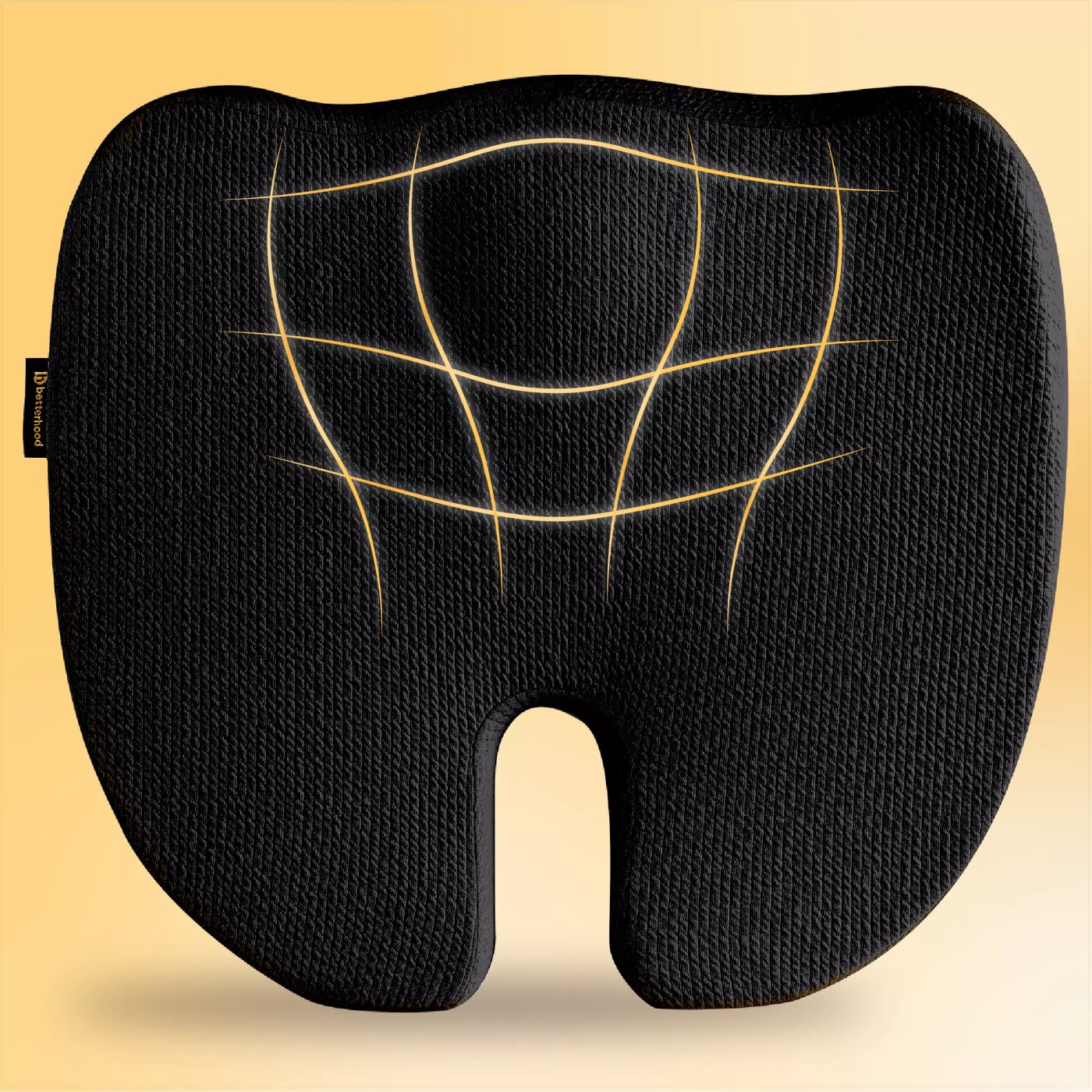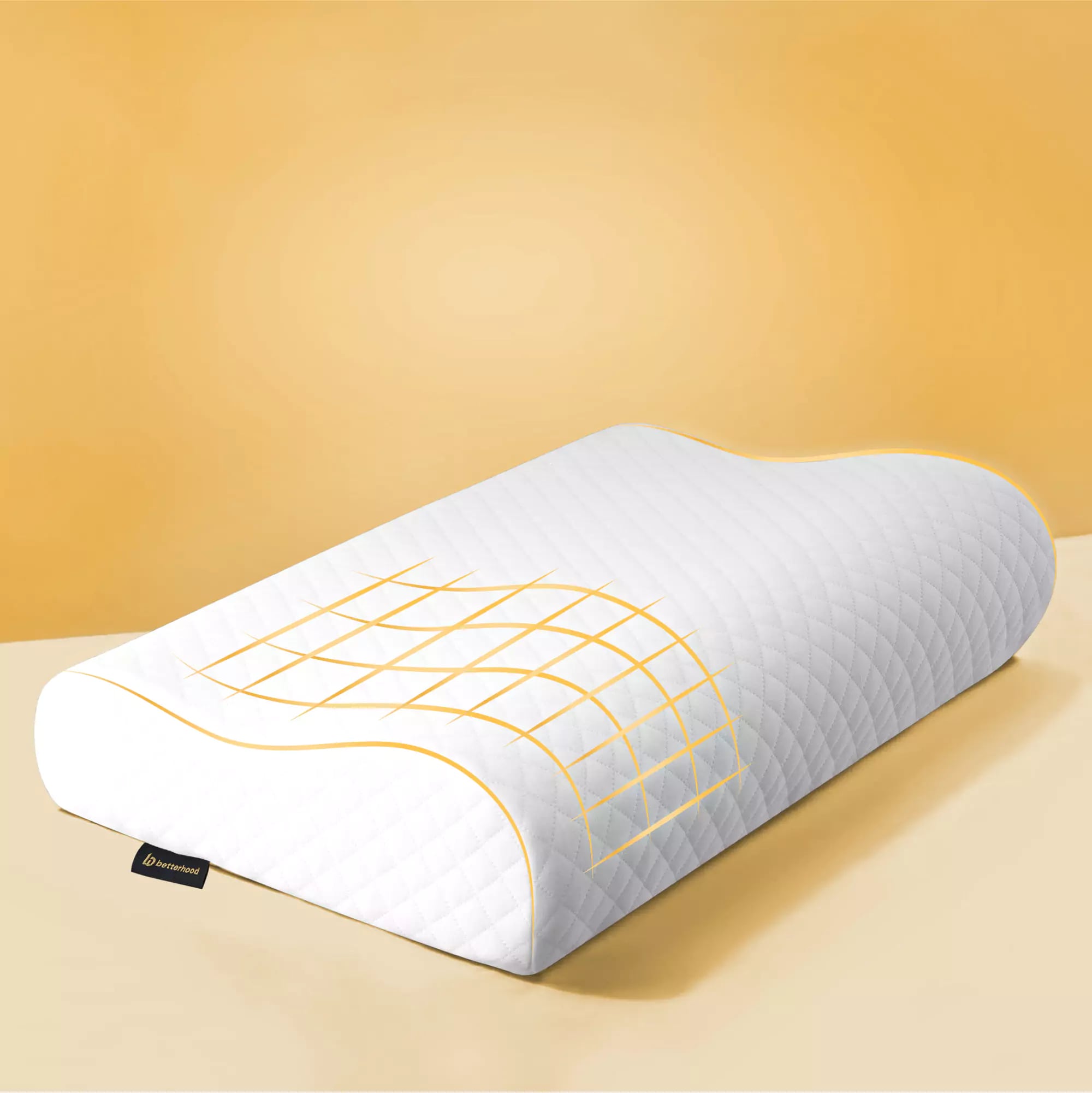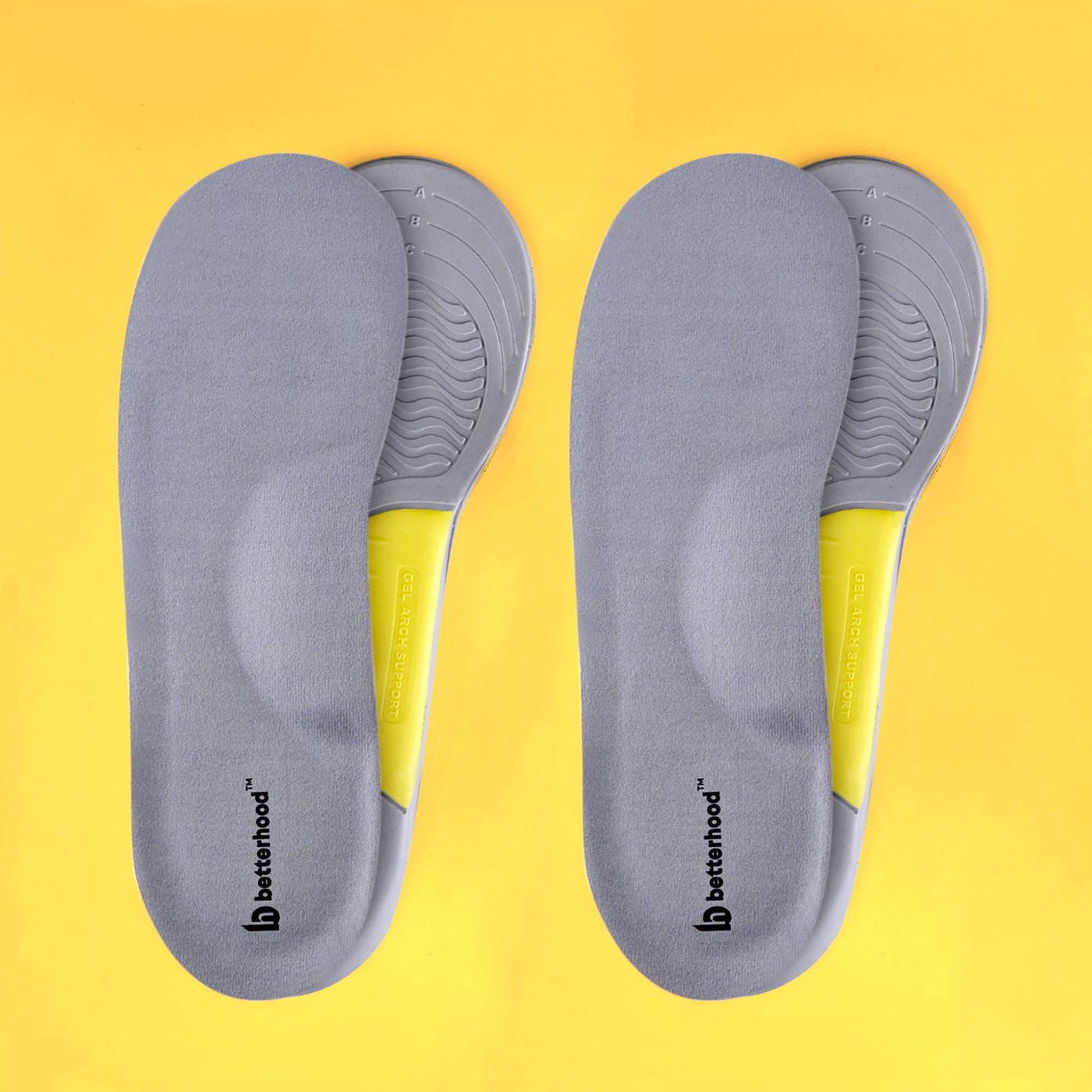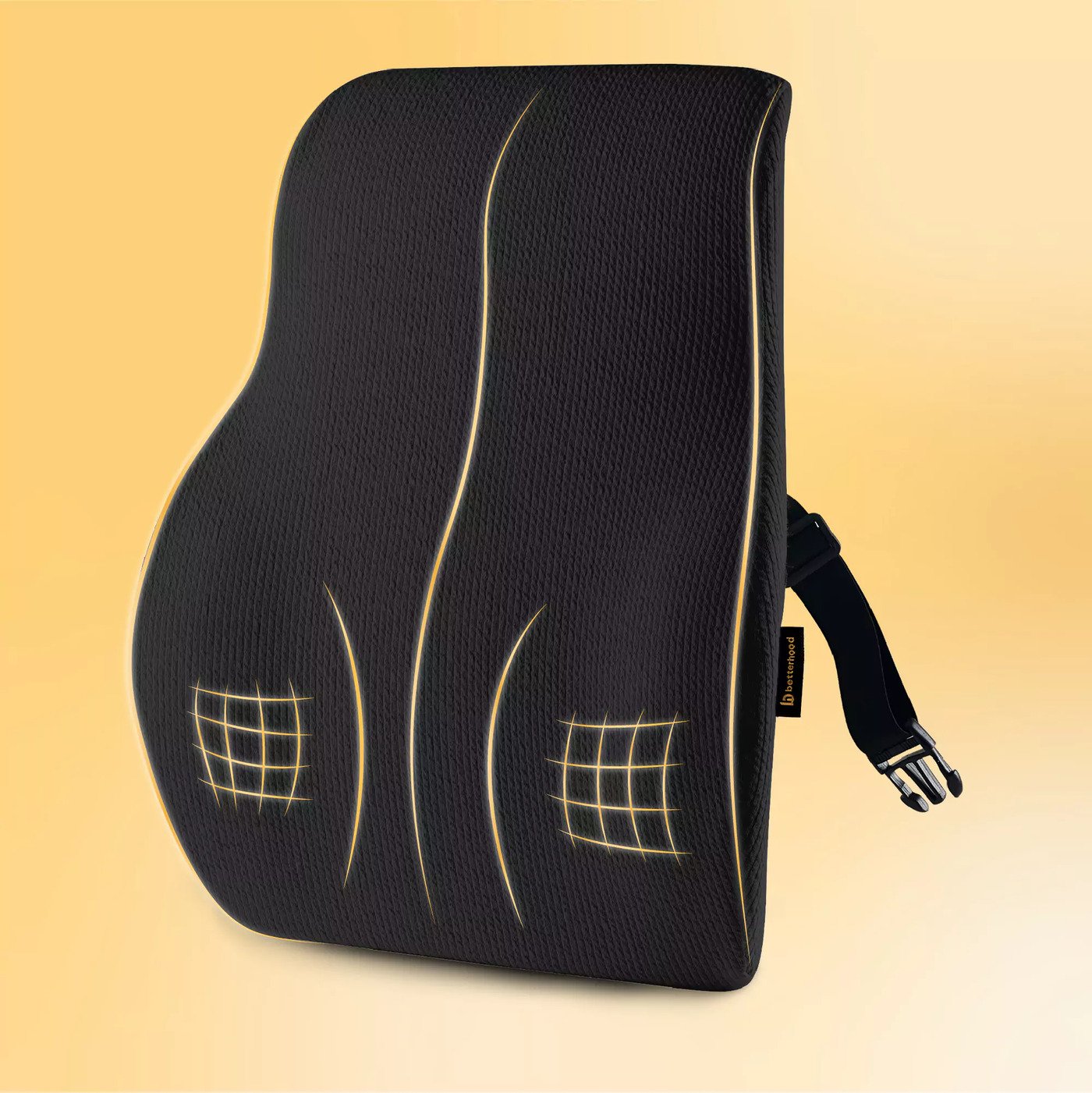You toss, turn, and wake up with a stiff neck that lingers throughout the day. Maybe you’ve tried fluffier pillows, flatter ones, or even rolled-up towels, but the discomfort never seems to go away. If you’ve found yourself wondering whether the problem is your pillow, you’re not alone. Millions of adults awaken from sleep with neck and shoulder pain caused by an inappropriate sleeping position. With aging, pain is not merely a nuisance. It is a mobility-, concentration-, and function-restrictive factor.
Contour cervical pillows are created to address these problems by providing support to enable improved alignment during sleep. But do they suit everyone? This article considers their advantages, disadvantages, and tips on how to select one suitable for your very own individual needs. If you are of middle age, a carer for a parent, or simply want to sleep more comfortably, you’ll find useful answers here.
What Are Contour Cervical Pillows?
Contour cervical pillows are tall and ridged on either side to keep the neck supported and have a depressed middle section to put the head in. This keeps your cervical spine from being out of alignment while sleeping, without sacrificing the joints and muscles. They are especially helpful in keeping you in an ideal sleeping position, which can offer you relief from neck tension and even stop long-term straining.
Difference Between Contour and Traditional Pillows
Unlike equally filled or flat regular pillows, contour pillows cradle your natural shape. They tend to utilize memory foam or latex, which are denser and firmer than down- or polyester-filled pillows. This kind of support system is better suited to be an excellent option for individuals suffering from pain, stiffness, or uncomfortable spinal positioning while sleeping.
What Are the Benefits of Using Contour Cervical Pillows?
Support for Natural Spine Alignment
It has been proven through studies that sleeping with a neutral neck is required in alleviating cervical strain and encouraging good posture [1]. With the use of a contour pillow, such can be assured through natural neck, head, and shoulder alignment. Such an alignment can eradicate objectionable sleeping positions which are not noticeable yet contribute to strain over time.
Relief from Chronic Neck and Shoulder Pain
Research in the Journal of Manipulative and Physiological Therapeutics discovered that cervical pillows lessened pain intensity and enhanced function in patients experiencing chronic pain [2]. The designed aim prevents nighttime nerve and soft tissue compression. For those experiencing daily pain in the neck, even minimal changes while sleeping can be noticed over the long term.
Enhanced Sleep Quality in Midlife and Beyond
Science has established that ergonomic pillows enhance the efficiency of sleep and diminish night-time wake-up calls [3]. In individuals beyond age 40, it translates to improved sleep as well as improved cognitive rejuvenation. Quality sleep is particularly important at midlife when recovery, memory, and emotional coping are highly reliant upon undisturbed rest.
Potential Benefits for Aging Populations
Since muscles and joints tighten with advancing age, support from contour pillows is all the more necessary. They alleviate pressure on the cervical spine and deter long-term consequences of bad sleeping posture, and are thus a significant part of healthy aging. Older adults with stiffness or persistent pain can particularly value the advantages of these pillows for night-time relief.
Who Might Benefit Most?
Those with cervical spondylosis or adverse postural habits caused by desk work or too much screen time suffer from pain in the neck for extended periods. A contour pillow provides cervical support and potentially delays the development of degenerative spinal conditions [4]. The additional support can be especially beneficial in conjunction with posture training or physical therapy.
Office Workers and Sedentary Adults
Sedentary individuals spend long periods sitting at workstations, generating postural muscles imbalances and head-forward posture. During sleep, ergonomic sleeping equipment, such as contour pillows, is used to reverse unfavorable posture developed while awake. Sedentary workers can be given increased nighttime support to reverse daytime activity.
Seniors Experiencing Musculoskeletal Discomfort
Older patients are prone to experiencing age-related changes in the spine, stiffness of the joints, or arthritis. Contour pillows provide organized support that can also lower pain and improve restorative sleep quality. Better sleep also reduces inflammation and fatigue that are commonly felt with advancing age.
Are There Risks or Drawbacks?
Initial Discomfort or Adjustment Period
Some users may find contour pillows uncomfortable at first. The structured shape can feel unusual, especially if you’ve used flat or fluffy pillows for years. However, studies show that most users adjust within a few days to two weeks [5]. To ease the transition, some people begin using the pillow for short naps before transitioning to overnight use.
Unsuitability for Certain Sleep Positions
Contour pillows are generally ideal for back and side sleepers. Stomach sleepers may find the raised edges put their neck in an awkward position, potentially worsening discomfort. If you sleep in multiple positions or are transitioning from stomach to side sleeping, a hybrid design may offer a middle ground.
Not Ideal for All Body Types or Health Conditions
People with unusually broad shoulders, very short necks, or certain medical conditions may not find standard contour pillows comfortable. It is important to consider anatomical variations and consult a physiotherapist if unsure. Specialized or custom-made pillows may be more suitable in such cases.
How Do You Choose the Right Cervical Pillow?
Side sleepers may need a taller edge to fill the space between their shoulder and ear. Back sleepers should look for a moderate contour that keeps their head in line with the spine. Stomach sleepers may do better with flat or hybrid pillow options. The right pillow supports your sleep style without forcing unnatural angles on the neck.
Material, Height, and Firmness
Choose memory foam for adaptive support or latex for firmer, more breathable comfort. Check for adjustable height options, especially if you have broad shoulders or a long neck. Firmness should balance support with comfort. Too-soft pillows can collapse under weight, while overly firm ones may cause pressure points.
When to Consult a Physiotherapist
If you have a medical condition like arthritis, spinal stenosis, or persistent neck pain, a physiotherapist can recommend the ideal pillow size, height, and material for your unique needs. Their guidance can ensure the pillow works in conjunction with any therapeutic goals or treatments you’re following.
Are There Alternatives for Sensitive Sleepers?
Memory Foam vs. Latex Contour Pillows
Memory foam cradles the neck and head in a gentle hug, perfect for those with chronic tension or pain. It provides continuous pressure relief, eliminating morning stiffness. Latex, firmer in texture, naturally cooling and hypoallergenic, is perfect for hot sleepers or those who like a firmer, more supportive sensation.
Adjustable Orthopedic Pillows
These pillows are designed with removable inserts or stackable pieces, so the user can customize firmness and height. They’re perfect for someone recovering from an injury, adjusting sleep patterns, or just not knowing what their ideal amount of support is. One pillow can meet multiple different needs over time, and they’re an excellent choice.
Pillow-Free Sleeping: Is It Ever Beneficial?
Certain stomach sleepers with adjustable spines can get away with sleeping without a pillow, as this will minimize neck extension. Yet this is not normally recommended for adults with back problems or over the age of 30. Make sure to visit a healthcare professional before changing this.
How Does betterhood Support Aging Well Through Smart Sleep Choices?
The Link Between Sleep Posture and Longevity
betterhood understands that small daily habits, like how you sleep, can have long-term impacts on your health. That’s why the brand emphasizes products that support proper alignment, improve sleep quality, and reduce chronic pain. Good sleep posture doesn’t just reduce discomfort. It plays a role in maintaining joint health, circulation, and even mental sharpness as we age.
Addressing Chronic Pain Before It Starts
Our approach is proactive. We focus on pain prevention and posture correction long before symptoms become chronic. Our cervical contour pillows are part of a broader toolkit designed to help people live healthier, more active lives as they age. By intervening early, we help users avoid the downward spiral of poor sleep, reduced mobility, and long-term discomfort.
Age-Tailored Wellness Solutions from Betterhood
From ergonomic pillows to expert-backed educational content, betterhood creates tools that cater to the unique needs of adults navigating midlife transitions and the aging process. Everything is tested in collaboration with healthcare professionals to ensure real-world efficacy. Our products are not only designed to feel good but to work well, offering lasting benefits that support independence, mobility, and overall quality of life.
Final Verdict: Are Contour Cervical Pillows for You?
Contour cervical pillows provide a wide range of advantages ranging from the ability to alleviate long-term neck and shoulder discomfort to creating better posture and towards overall long-term well-being, particularly as we get older. Their ergonomic structure can actually change how you sleep and how you feel when you wake up.
They are not, however, a one-size-fits-all product. The shape and support that will be suitable for one person will not be for another, particularly if you sleep in a particular sleep position, take specific measurements, or suffer from severe health issues. Stomach sleepers, those who have particular spinal curvatures, or those who are post-surgical may need different support structures.
Finally, your comfort issues, anatomy, and health should all affect your decision. Take time to look at your sleeping habits and current pain levels. A contour pillow may be a good investment but only if it accommodates your unique needs. If in doubt, visit a sleep consultant or physiotherapist and make an educated, personal decision that will benefit your well-being over the long term.
Frequently Asked Questions:
1. Can everyone use a contour pillow comfortably?
Most people can adapt to contour pillows, but those with unique anatomical features or specific health concerns should seek professional advice.
2. How do contour pillows help with spine alignment during sleep?
They support the natural curvature of the neck, maintaining a neutral spinal position that reduces muscular tension and joint stress.
3. Can a cervical pillow worsen neck stiffness?
Only if it is the wrong height, firmness, or not suited to your sleep position. Choosing the right pillow can actually alleviate stiffness.
4. How long does it take to adjust to a contour pillow?
Most people adapt within a week. A short adjustment period is normal as your body acclimates to a more supportive design.
References:
[1] https://pubmed.ncbi.nlm.nih.gov/12184892/
[2] https://www.jmptonline.org/article/S0161-4754(07)00169-8/fulltext
[3] https://www.ncbi.nlm.nih.gov/pmc/articles/PMC6483921/
[4] https://pubmed.ncbi.nlm.nih.gov/32287153/
[5] https://www.ncbi.nlm.nih.gov/pmc/articles/PMC7700526/






